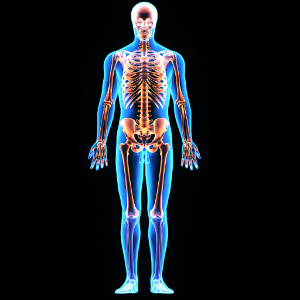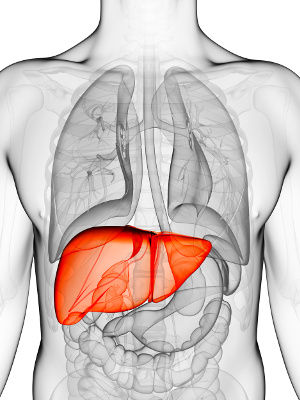afterLoad (456.31KB) (430μs)
afterInitialise (1.27MB) (27.53ms)
afterRoute (870.31KB) (14.27ms)
beforeRenderComponent com_tags (21.13KB) (936μs)
afterRenderComponent com_tags (1.72MB) (93.81ms)
afterDispatch (25.21KB) (4.73ms)
beforeRenderRawModule mod_articles_category (READ MORE...) (372.12KB) (15.13ms)
Before Access::preloadComponents (all components) (56.7KB) (521μs)
After Access::preloadComponents (all components) (103.05KB) (3.48ms)
Before Access::getAssetRules (id:8 name:com_content) (840B) (20μs)
After Access::getAssetRules (id:8 name:com_content) (7.05KB) (40μs)
afterRenderRawModule mod_articles_category (READ MORE...) (6.33KB) (126ms)
beforeRenderRawModule mod_tags_popular (Search) (4.81KB) (30μs)
afterRenderRawModule mod_tags_popular (Search) (1.87KB) (107ms)
beforeRenderRawModule mod_custom (Remember to download Heart Healthy Seniors) (816B) (33μs)
afterRenderRawModule mod_custom (Remember to download Heart Healthy Seniors) (4.86KB) (252μs)
beforeRenderRawModule mod_custom (Get additionel and more detailed knowledge ) (752B) (13μs)
afterRenderRawModule mod_custom (Get additionel and more detailed knowledge ) (1.67KB) (28μs)
beforeRenderRawModule mod_custom (BOOST YOUR IMMUNE DEFENSE) (608B) (11μs)
afterRenderRawModule mod_custom (BOOST YOUR IMMUNE DEFENSE) (928B) (22μs)
beforeRenderRawModule mod_custom (Are you taking supplements) (736B) (10μs)
afterRenderRawModule mod_custom (Are you taking supplements) (1.03KB) (19μs)
beforeRenderRawModule mod_custom (Antiaging) (720B) (9μs)
afterRenderRawModule mod_custom (Antiaging) (1.02KB) (18μs)
beforeRenderRawModule mod_custom (Exercise) (720B) (9μs)
afterRenderRawModule mod_custom (Exercise) (1.02KB) (18μs)
beforeRenderRawModule mod_custom (Check this before you buy a Q10 product) (752B) (9μs)
afterRenderRawModule mod_custom (Check this before you buy a Q10 product) (944B) (18μs)
beforeRenderRawModule mod_custom (Chronic fatigue tied Alan to his bed but Q10 capsules saved him:) (245.53KB) (7.19ms)
afterRenderRawModule mod_custom (Chronic fatigue tied Alan to his bed but Q10 capsules saved him:) (960B) (46μs)
beforeRenderModule mod_custom (Chronic fatigue tied Alan to his bed but Q10 capsules saved him:) (768B) (5μs)
afterRenderModule mod_custom (Chronic fatigue tied Alan to his bed but Q10 capsules saved him:) (1.3KB) (461μs)
beforeRenderRawModule mod_custom (Cholesterol-lowering without side effects:) (368B) (20μs)
afterRenderRawModule mod_custom (Cholesterol-lowering without side effects:) (2.19KB) (40μs)
beforeRenderModule mod_custom (Cholesterol-lowering without side effects:) (752B) (2μs)
afterRenderModule mod_custom (Cholesterol-lowering without side effects:) (1.28KB) (43μs)
beforeRenderModule mod_articles_category (READ MORE...) (21.32KB) (381μs)
afterRenderModule mod_articles_category (READ MORE...) (1.25KB) (46μs)
beforeRenderModule mod_tags_popular (Search) (5.17KB) (14μs)
afterRenderModule mod_tags_popular (Search) (1.27KB) (25μs)
beforeRenderModule mod_custom (Remember to download Heart Healthy Seniors) (1.17KB) (11μs)
afterRenderModule mod_custom (Remember to download Heart Healthy Seniors) (1.3KB) (23μs)
beforeRenderModule mod_custom (Get additionel and more detailed knowledge ) (368B) (9μs)
afterRenderModule mod_custom (Get additionel and more detailed knowledge ) (1.3KB) (21μs)
beforeRenderModule mod_custom (BOOST YOUR IMMUNE DEFENSE) (224B) (9μs)
afterRenderModule mod_custom (BOOST YOUR IMMUNE DEFENSE) (1.28KB) (21μs)
beforeRenderModule mod_custom (Are you taking supplements) (352B) (1.01ms)
afterRenderModule mod_custom (Are you taking supplements) (1.28KB) (49μs)
beforeRenderModule mod_custom (Antiaging) (336B) (16μs)
afterRenderModule mod_custom (Antiaging) (1.27KB) (24μs)
beforeRenderModule mod_custom (Exercise) (336B) (10μs)
afterRenderModule mod_custom (Exercise) (1.25KB) (21μs)
beforeRenderModule mod_custom (Check this before you buy a Q10 product) (352B) (9μs)
afterRenderModule mod_custom (Check this before you buy a Q10 product) (1.28KB) (21μs)
beforeRenderRawModule mod_menu (Main menu-US) (20.94KB) (794μs)
afterRenderRawModule mod_menu (Main menu-US) (152.66KB) (4.07ms)
beforeRenderModule mod_menu (Main menu-US) (720B) (4μs)
afterRenderModule mod_menu (Main menu-US) (4.36KB) (67μs)
beforeRenderRawModule mod_languages (Sprogskift) (3.44KB) (20μs)
afterRenderRawModule mod_languages (Sprogskift) (32.32KB) (12.58ms)
beforeRenderModule mod_languages (Sprogskift) (720B) (6μs)
afterRenderModule mod_languages (Sprogskift) (5.31KB) (22μs)
beforeRenderRawModule mod_finder () (6.34KB) (12μs)
afterRenderRawModule mod_finder () (214.16KB) (10.21ms)
beforeRenderModule mod_finder () (704B) (4μs)
afterRenderModule mod_finder () (5.79KB) (34μs)
beforeRenderRawModule mod_custom () (6.62KB) (158μs)
afterRenderRawModule mod_custom () (23.15KB) (4.34ms)
beforeRenderModule mod_custom () (704B) (6μs)
afterRenderModule mod_custom () (1.23KB) (51μs)
beforeRenderRawModule mod_menu (Main menu-US) (5.07KB) (113μs)
afterRenderRawModule mod_menu (Main menu-US) (5.8KB) (5.69ms)
beforeRenderModule mod_menu (Main menu-US) (720B) (8μs)
afterRenderModule mod_menu (Main menu-US) (1.25KB) (72μs)
beforeRenderRawModule mod_languages (Sprogskift Mobil) (912B) (22μs)
afterRenderRawModule mod_languages (Sprogskift Mobil) (3.89KB) (2.35ms)
beforeRenderModule mod_languages (Sprogskift Mobil) (720B) (5μs)
afterRenderModule mod_languages (Sprogskift Mobil) (1.27KB) (37μs)
beforeRenderRawModule mod_finder () (2.3KB) (11μs)
afterRenderRawModule mod_finder () (6.29KB) (2.71ms)
beforeRenderModule mod_finder () (704B) (6μs)
afterRenderModule mod_finder () (1.23KB) (51μs)
beforeRenderRawModule mod_custom () (8.66KB) (189μs)
afterRenderRawModule mod_custom () (904B) (151μs)
beforeRenderModule mod_custom () (704B) (3μs)
afterRenderModule mod_custom () (2.43KB) (26μs)
beforeRenderRawModule mod_custom () (688B) (81μs)
afterRenderRawModule mod_custom () (896B) (96μs)
beforeRenderModule mod_custom () (704B) (2μs)
afterRenderModule mod_custom () (2.71KB) (21μs)
afterRender (290.96KB) (21.66ms)
| 1 x afterRenderRawModule mod_articles_category (READ MORE...) (6.33KB) (26.78%) | 125.73ms |
| 1 x afterRenderRawModule mod_tags_popular (Search) (1.87KB) (22.72%) | 106.64ms |
| 1 x afterRenderComponent com_tags (1.72MB) (19.98%) | 93.81ms |
| 1 x afterInitialise (1.27MB) (5.86%) | 27.53ms |
| 1 x afterRender (290.96KB) (4.61%) | 21.66ms |
| 1 x beforeRenderRawModule mod_articles_category (READ MORE...) (372.12KB) (3.22%) | 15.13ms |
| 1 x afterRoute (870.31KB) (3.04%) | 14.27ms |
| 1 x afterRenderRawModule mod_languages (Sprogskift) (32.32KB) (2.68%) | 12.58ms |
| 1 x afterRenderRawModule mod_finder () (214.16KB) (2.17%) | 10.21ms |
| 1 x beforeRenderRawModule mod_custom (Chronic fatigue tied Alan to his bed but Q10 capsules saved him:) (245.53KB) (1.53%) | 7.19ms |
| 1 x afterRenderRawModule mod_menu (Main menu-US) (5.8KB) (1.21%) | 5.69ms |
| 1 x afterDispatch (25.21KB) (1.01%) | 4.73ms |
| 1 x afterRenderRawModule mod_custom () (23.15KB) (0.92%) | 4.34ms |
| 1 x afterRenderRawModule mod_menu (Main menu-US) (152.66KB) (0.87%) | 4.07ms |
| 1 x After Access::preloadComponents (all components) (103.05KB) (0.74%) | 3.48ms |
| 1 x afterRenderRawModule mod_finder () (6.29KB) (0.58%) | 2.71ms |
| 1 x afterRenderRawModule mod_languages (Sprogskift Mobil) (3.89KB) (0.5%) | 2.35ms |
| 1 x beforeRenderModule mod_custom (Are you taking supplements) (352B) (0.22%) | 1.01ms |
| 1 x beforeRenderComponent com_tags (21.13KB) (0.2%) | 936μs |
| 1 x beforeRenderRawModule mod_menu (Main menu-US) (20.94KB) (0.17%) | 794μs |
| 1 x Before Access::preloadComponents (all components) (56.7KB) (0.11%) | 521μs |
| 1 x afterRenderModule mod_custom (Chronic fatigue tied Alan to his bed but Q10 capsules saved him:) (1.3KB) (0.1%) | 461μs |
| 1 x afterLoad (456.31KB) (0.09%) | 430μs |
| 1 x beforeRenderModule mod_articles_category (READ MORE...) (21.32KB) (0.08%) | 381μs |
| 1 x afterRenderRawModule mod_custom (Remember to download Heart Healthy Seniors) (4.86KB) (0.05%) | 252μs |
| 1 x beforeRenderRawModule mod_custom () (8.66KB) (0.04%) | 189μs |
| 1 x beforeRenderRawModule mod_custom () (6.62KB) (0.03%) | 158μs |
| 1 x afterRenderRawModule mod_custom () (904B) (0.03%) | 151μs |
| 1 x beforeRenderRawModule mod_menu (Main menu-US) (5.07KB) (0.02%) | 113μs |
| 1 x afterRenderRawModule mod_custom () (896B) (0.02%) | 96μs |
| 1 x beforeRenderRawModule mod_custom () (688B) (0.02%) | 81μs |
| 1 x afterRenderModule mod_menu (Main menu-US) (1.25KB) (0.02%) | 72μs |
| 1 x afterRenderModule mod_menu (Main menu-US) (4.36KB) (0.01%) | 67μs |
| 1 x afterRenderModule mod_custom () (1.23KB) (0.01%) | 51μs |
| 1 x afterRenderModule mod_finder () (1.23KB) (0.01%) | 51μs |
| 1 x afterRenderModule mod_custom (Are you taking supplements) (1.28KB) (0.01%) | 49μs |
| 1 x afterRenderRawModule mod_custom (Chronic fatigue tied Alan to his bed but Q10 capsules saved him:) (960B) (0.01%) | 46μs |
| 1 x afterRenderModule mod_articles_category (READ MORE...) (1.25KB) (0.01%) | 46μs |
| 1 x afterRenderModule mod_custom (Cholesterol-lowering without side effects:) (1.28KB) (0.01%) | 43μs |
| 1 x After Access::getAssetRules (id:8 name:com_content) (7.05KB) (0.01%) | 40μs |
| 1 x afterRenderRawModule mod_custom (Cholesterol-lowering without side effects:) (2.19KB) (0.01%) | 40μs |
| 1 x afterRenderModule mod_languages (Sprogskift Mobil) (1.27KB) (0.01%) | 37μs |
| 1 x afterRenderModule mod_finder () (5.79KB) (0.01%) | 34μs |
| 1 x beforeRenderRawModule mod_custom (Remember to download Heart Healthy Seniors) (816B) (0.01%) | 33μs |
| 1 x beforeRenderRawModule mod_tags_popular (Search) (4.81KB) (0.01%) | 30μs |
| 1 x afterRenderRawModule mod_custom (Get additionel and more detailed knowledge ) (1.67KB) (0.01%) | 28μs |
| 1 x afterRenderModule mod_custom () (2.43KB) (0.01%) | 26μs |
| 1 x afterRenderModule mod_tags_popular (Search) (1.27KB) (0.01%) | 25μs |
| 1 x afterRenderModule mod_custom (Antiaging) (1.27KB) (0.01%) | 24μs |
| 1 x afterRenderModule mod_custom (Remember to download Heart Healthy Seniors) (1.3KB) (0%) | 23μs |
| 1 x afterRenderModule mod_languages (Sprogskift) (5.31KB) (0%) | 22μs |
| 1 x beforeRenderRawModule mod_languages (Sprogskift Mobil) (912B) (0%) | 22μs |
| 1 x afterRenderRawModule mod_custom (BOOST YOUR IMMUNE DEFENSE) (928B) (0%) | 22μs |
| 1 x afterRenderModule mod_custom (Exercise) (1.25KB) (0%) | 21μs |
| 1 x afterRenderModule mod_custom (Get additionel and more detailed knowledge ) (1.3KB) (0%) | 21μs |
| 1 x afterRenderModule mod_custom (BOOST YOUR IMMUNE DEFENSE) (1.28KB) (0%) | 21μs |
| 1 x afterRenderModule mod_custom (Check this before you buy a Q10 product) (1.28KB) (0%) | 21μs |
| 1 x afterRenderModule mod_custom () (2.71KB) (0%) | 21μs |
| 1 x Before Access::getAssetRules (id:8 name:com_content) (840B) (0%) | 20μs |
| 1 x beforeRenderRawModule mod_languages (Sprogskift) (3.44KB) (0%) | 20μs |
| 1 x beforeRenderRawModule mod_custom (Cholesterol-lowering without side effects:) (368B) (0%) | 20μs |
| 1 x afterRenderRawModule mod_custom (Are you taking supplements) (1.03KB) (0%) | 19μs |
| 1 x afterRenderRawModule mod_custom (Antiaging) (1.02KB) (0%) | 18μs |
| 1 x afterRenderRawModule mod_custom (Exercise) (1.02KB) (0%) | 18μs |
| 1 x afterRenderRawModule mod_custom (Check this before you buy a Q10 product) (944B) (0%) | 18μs |
| 1 x beforeRenderModule mod_custom (Antiaging) (336B) (0%) | 16μs |
| 1 x beforeRenderModule mod_tags_popular (Search) (5.17KB) (0%) | 14μs |
| 1 x beforeRenderRawModule mod_custom (Get additionel and more detailed knowledge ) (752B) (0%) | 13μs |
| 2 x beforeRenderModule mod_menu (Main menu-US) (720B) (0%) | 12μs |
| 1 x beforeRenderRawModule mod_finder () (6.34KB) (0%) | 12μs |
| 3 x beforeRenderModule mod_custom () (704B) (0%) | 11μs |
| 1 x beforeRenderRawModule mod_custom (BOOST YOUR IMMUNE DEFENSE) (608B) (0%) | 11μs |
| 1 x beforeRenderModule mod_custom (Remember to download Heart Healthy Seniors) (1.17KB) (0%) | 11μs |
| 1 x beforeRenderRawModule mod_finder () (2.3KB) (0%) | 11μs |
| 1 x beforeRenderRawModule mod_custom (Are you taking supplements) (736B) (0%) | 10μs |
| 1 x beforeRenderModule mod_custom (Exercise) (336B) (0%) | 10μs |
| 2 x beforeRenderModule mod_finder () (704B) (0%) | 10μs |
| 1 x beforeRenderRawModule mod_custom (Exercise) (720B) (0%) | 9μs |
| 1 x beforeRenderRawModule mod_custom (Check this before you buy a Q10 product) (752B) (0%) | 9μs |
| 1 x beforeRenderModule mod_custom (Get additionel and more detailed knowledge ) (368B) (0%) | 9μs |
| 1 x beforeRenderModule mod_custom (BOOST YOUR IMMUNE DEFENSE) (224B) (0%) | 9μs |
| 1 x beforeRenderRawModule mod_custom (Antiaging) (720B) (0%) | 9μs |
| 1 x beforeRenderModule mod_custom (Check this before you buy a Q10 product) (352B) (0%) | 9μs |
| 1 x beforeRenderModule mod_languages (Sprogskift) (720B) (0%) | 6μs |
| 1 x beforeRenderModule mod_custom (Chronic fatigue tied Alan to his bed but Q10 capsules saved him:) (768B) (0%) | 5μs |
| 1 x beforeRenderModule mod_languages (Sprogskift Mobil) (720B) (0%) | 5μs |
| 1 x beforeRenderModule mod_custom (Cholesterol-lowering without side effects:) (752B) (0%) | 2μs |
 Many people take calcium supplements for bone health. However, this does not significantly reduce their risk of fractures and may even be associated with a range of serious side effects and premature death because calcium from supplements can accumulate in the blood vessel walls and increase the risk of atherosclerosis and heart attacks. A new review article published in Current Osteoporosis Reports highlights this connection. It is also important to be aware that the body’s calcium absorption, distribution, and bone health depend on vitamins C, D, and K2, as well as magnesium.
Many people take calcium supplements for bone health. However, this does not significantly reduce their risk of fractures and may even be associated with a range of serious side effects and premature death because calcium from supplements can accumulate in the blood vessel walls and increase the risk of atherosclerosis and heart attacks. A new review article published in Current Osteoporosis Reports highlights this connection. It is also important to be aware that the body’s calcium absorption, distribution, and bone health depend on vitamins C, D, and K2, as well as magnesium.








 A growing number of children are affected by asthma, which is associated with a reduced quality of life. Diet plays a significant role in the development of the disease, and it appears that excessive sugar intake from breakfast cereals, soft drinks, candy, and other sources increases the risk. A deficiency in vitamin D and magnesium, which is widespread, also raises the risk according to an article published in Frontiers in Nutrition. But why does sugar increase the risk of developing asthma, and how can vitamin D and magnesium help protect against the disease?
A growing number of children are affected by asthma, which is associated with a reduced quality of life. Diet plays a significant role in the development of the disease, and it appears that excessive sugar intake from breakfast cereals, soft drinks, candy, and other sources increases the risk. A deficiency in vitamin D and magnesium, which is widespread, also raises the risk according to an article published in Frontiers in Nutrition. But why does sugar increase the risk of developing asthma, and how can vitamin D and magnesium help protect against the disease? Most people with type 2 diabetes have hidden deficiencies in nutrients such as vitamin D, magnesium, and vitamin B12. This is the conclusion of a major meta-analysis published in BMJ Nutrition, Prevention & Health. The researchers also explain how diet, metabolic processes, genetics, and medication can influence the body’s ability to utilize these nutrients. Since type 2 diabetes and its precursor, metabolic syndrome, are spreading like a pandemic, much greater attention should be given to essential nutrients, as deficiencies contribute to the development and worsening of the disease.
Most people with type 2 diabetes have hidden deficiencies in nutrients such as vitamin D, magnesium, and vitamin B12. This is the conclusion of a major meta-analysis published in BMJ Nutrition, Prevention & Health. The researchers also explain how diet, metabolic processes, genetics, and medication can influence the body’s ability to utilize these nutrients. Since type 2 diabetes and its precursor, metabolic syndrome, are spreading like a pandemic, much greater attention should be given to essential nutrients, as deficiencies contribute to the development and worsening of the disease.
 Fibromyalgia causes muscle pains, tiredness, sleep problems, and impaired quality of life. It is primarily women who are affected, and several studies have shown that diet plays a role in the development of the disease. The same goes for the the intake of calcium and magnesium, which must be balanced correctly. Magnesium deficiency is rather common and can increase the risk of metabolic disturbances and inflammation, which contributes to the development and symptoms of the disease. This was shown in a study of women that is published in Advances in Rheumatology. Patients suffering from fibromyalgia should also pay attention to Q10 deficiency and food intolerance.
Fibromyalgia causes muscle pains, tiredness, sleep problems, and impaired quality of life. It is primarily women who are affected, and several studies have shown that diet plays a role in the development of the disease. The same goes for the the intake of calcium and magnesium, which must be balanced correctly. Magnesium deficiency is rather common and can increase the risk of metabolic disturbances and inflammation, which contributes to the development and symptoms of the disease. This was shown in a study of women that is published in Advances in Rheumatology. Patients suffering from fibromyalgia should also pay attention to Q10 deficiency and food intolerance. Magnesium is important for numerous physiological functions. In a new review article published in Nutrients, researchers have looked at the relation between the body’s magnesium levels and a variety of different ageing markers. Also, they hypothesize that optimal intake of magnesium throughout life is an easy and inexpensive way to obtain healthy ageing.
Magnesium is important for numerous physiological functions. In a new review article published in Nutrients, researchers have looked at the relation between the body’s magnesium levels and a variety of different ageing markers. Also, they hypothesize that optimal intake of magnesium throughout life is an easy and inexpensive way to obtain healthy ageing.

 Non-alcoholic fatty liver disease (NAFLD) and alcoholic fatty liver disease are associated with the development of other liver diseases, obesity, diabetes, cardiovascular diseases, and cancer. Diet and drinking habits play a major role. Magnesium deficiency also seems to increase the risk of cardiovascular disease and other complications, particularly in individuals with liver-related metabolic disorders, according to a large population study published in Nutrients.
Non-alcoholic fatty liver disease (NAFLD) and alcoholic fatty liver disease are associated with the development of other liver diseases, obesity, diabetes, cardiovascular diseases, and cancer. Diet and drinking habits play a major role. Magnesium deficiency also seems to increase the risk of cardiovascular disease and other complications, particularly in individuals with liver-related metabolic disorders, according to a large population study published in Nutrients.





 Uric acid is a natural waste product in the blood formed when the body breaks down dead cells. If uric acid levels become too high, it can lead to gout, a chronic condition associated with elevated blood pressure, kidney disease, cardiovascular disease, and other illnesses marked by chronic inflammation. According to a population study published in Frontiers in Endocrinology, there appears to be a link between magnesium deficiency, elevated uric acid, and chronic inflammation.
Uric acid is a natural waste product in the blood formed when the body breaks down dead cells. If uric acid levels become too high, it can lead to gout, a chronic condition associated with elevated blood pressure, kidney disease, cardiovascular disease, and other illnesses marked by chronic inflammation. According to a population study published in Frontiers in Endocrinology, there appears to be a link between magnesium deficiency, elevated uric acid, and chronic inflammation.
 Calcium and magnesium are vital for our bones, nervous system, muscles, heart, blood pressure, and many other functions. It is essential to maintain the right balance between the two minerals that work in a team and can easily be compared to yin and yang. Vitamin D is also needed for the uptake and utilization of the minerals. Still, deficiencies of all three nutrients are widespread and that increases the risk of infections, neurological disturbances, muscle cramps, constipation, hypertension, osteoporosis, cancer, and a number of other grave diseases. In our part of the world, many people get too much calcium from dairy products and supplements. That can disrupt the delicate balance between calcium and magnesium and result in oxidative stress, chronic inflammation, and cell death.
Calcium and magnesium are vital for our bones, nervous system, muscles, heart, blood pressure, and many other functions. It is essential to maintain the right balance between the two minerals that work in a team and can easily be compared to yin and yang. Vitamin D is also needed for the uptake and utilization of the minerals. Still, deficiencies of all three nutrients are widespread and that increases the risk of infections, neurological disturbances, muscle cramps, constipation, hypertension, osteoporosis, cancer, and a number of other grave diseases. In our part of the world, many people get too much calcium from dairy products and supplements. That can disrupt the delicate balance between calcium and magnesium and result in oxidative stress, chronic inflammation, and cell death. "After about one week of taking the Q10 supplement I could feel a huge difference," says 23-year old Alan Piccini, who has been suffering from extreme fatigue and muscle aches ever since he was a child.
"After about one week of taking the Q10 supplement I could feel a huge difference," says 23-year old Alan Piccini, who has been suffering from extreme fatigue and muscle aches ever since he was a child. “Taking capsules with co-enzyme Q10 has freed me of the severe side effects of my cholesterol lowering medicine,” Mrs Franken explains.
“Taking capsules with co-enzyme Q10 has freed me of the severe side effects of my cholesterol lowering medicine,” Mrs Franken explains.